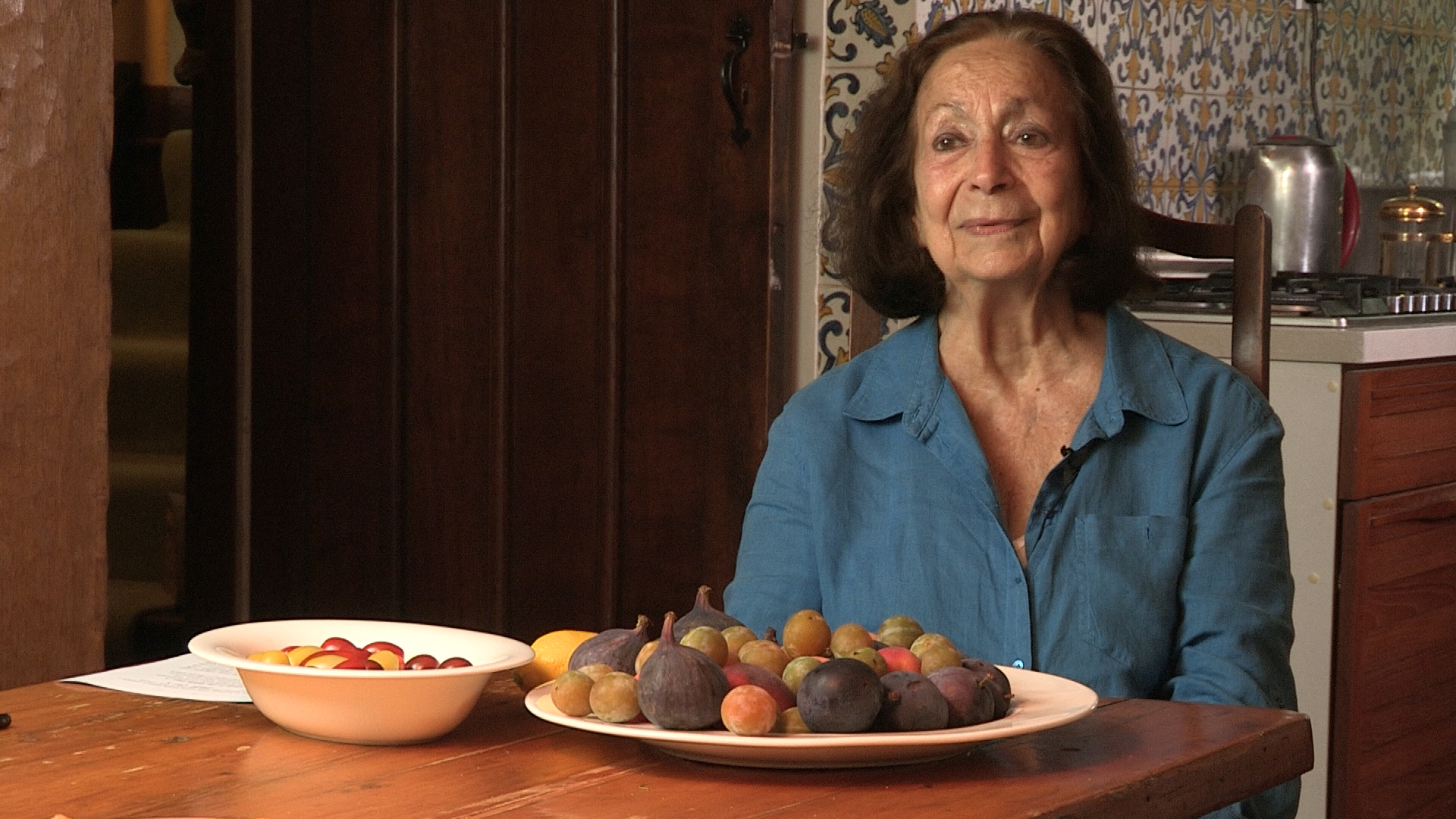NEXT STORY

The Cooking of Venice
RELATED STORIES

NEXT STORY

The Cooking of Venice
RELATED STORIES


|
Views | Duration | |
|---|---|---|---|
| 61. 'The Muslims didn't eat it' | 03:53 | ||
| 62. Collecting Jewish recipes | 03:40 | ||
| 63. The Jewish community in India | 02:36 | ||
| 64. My experience of South Africa | 5 | 04:08 | |
| 65. The Ashkenazi culture and cuisine | 04:16 | ||
| 66. Financing my trips as a single mother | 04:21 | ||
| 67. Collecting recipes on trains | 2 | 04:24 | |
| 68. Each recipe has a story | 1 | 04:32 | |
| 69. The Cooking of Venice | 2 | 05:22 | |
| 70. Discovering my Jewish roots | 1 | 02:29 |


I always felt a recipe that has tradition, that is part of a culture of an old civilisation, that people cook at home all the time. That restaurants have adopted, that people love. This is what I'm doing. And of course, everything else can be fantastic, but it's not my job. So, going to where they served wine, I found there they were eating all the kind of little foods, the salamis of the region. But all things of the region, but little things, while we tasted all the local wines. Because it was for Italians to choose wines from different, always the same region, but from different estates. And they wanted to taste them before. And there again, when I say again, but people sang. And they sang songs. Because Italians like singing. I heard a lot of singing in Naples, for instance. But they were singing, and I felt so moved, and I just thought, the joy, the pleasure, the happiness of this area, Alba. And what was the other, also close by, where they produce wines. And there are mountains, and the regional food is so good. And I just thought, this is really a heavenly place to live in. All you people singing here. And then somebody sitting next to me, 'Actually, this is the highest level of suicides here'. Where people go and throw themselves from the... 'Why?', I said. Because there's a lot of men who run farms, who are farmers. And they can't find wives now. They won't come and farm. Women want their own life because it was the beginning of women getting work. And they don't want to be a farmer. And he said, 'So, they're miserable'. There was always, for me, this learning about food, but it was the life as well.
And I also... I remember being in a place, I was asking always what they cooked. But then they would talk about everything else, and I remember one taxi driver said... we were, because everybody I interviewed in Italy, their parents had been of a family of ten. And some of them had been of a family of ten. And they only wanted one child, or two maximum. Because they didn't want the life that they had as people living before the war, farming the land. They had been peasants or working the land. Or living on the land. But this taxi driver said, 'We are now a country of mammone'. It's mother's boys. We were all loved by our mothers and treated by Gods by our mothers, who didn't let us do anything, by mothers. And when we marry, our wives tell us, 'You iron your own shirt'. And they get angry when we expect them to be like our mothers. And so... and they leave. So, it was the beginning of a big change there and in Spain.
Claudia Roden (b. 1936) is an Egyptian-born British cookbook writer and cultural anthropologist of Sephardi/Mizrahi descent. She is best known as the author of Middle Eastern cookbooks including A Book of Middle Eastern Food, The New Book of Middle Eastern Food and The Book of Jewish Food.
Title: Each recipe has a story
Listeners: Nelly Wolman
Claudia Roden talking to her granddaughter Nelly Wolman about her life in food.
Tags: recipe, wine tasting, Alba, farming, suicide, family life, mothers, wives, men
Duration: 4 minutes, 32 seconds
Date story recorded: September 2022
Date story went live: 04 December 2023